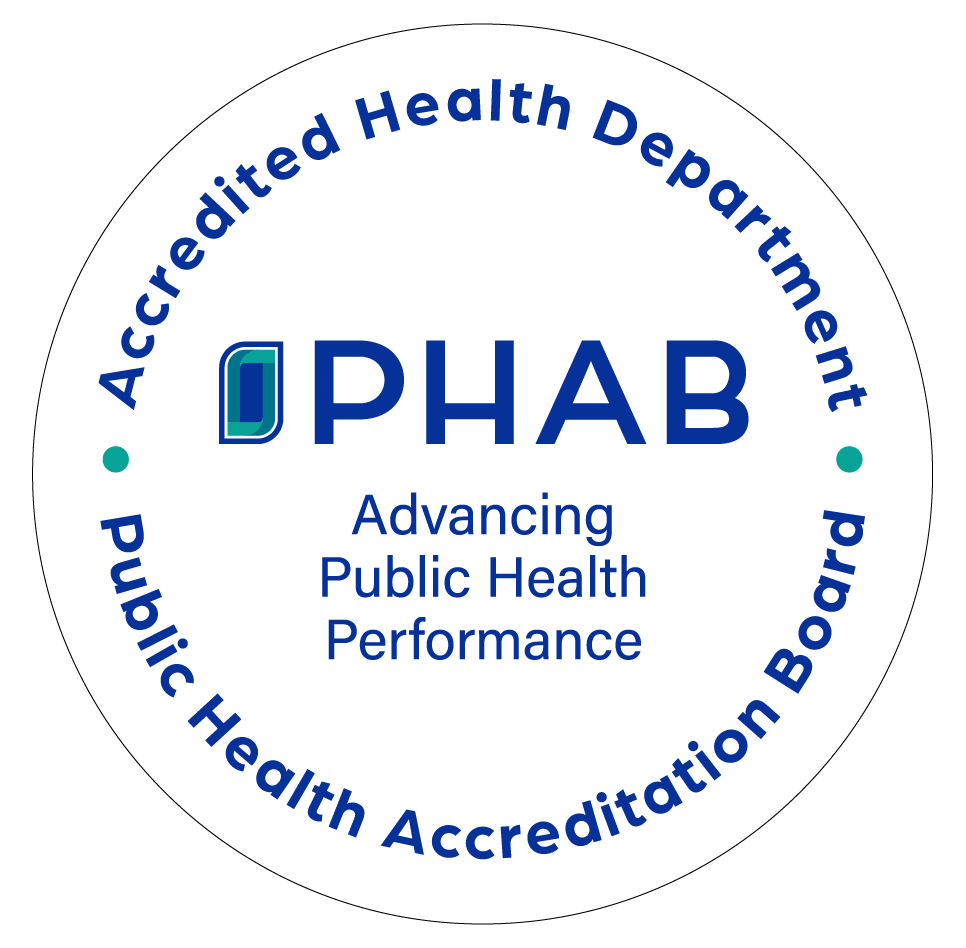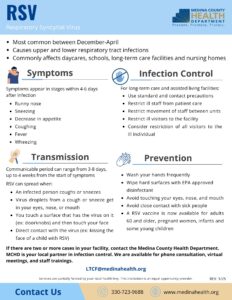
Respiratory Syncytial Virus (RSV) is a common respiratory virus that infects the nose, throat, and lungs.
RSV spreads in the fall and peaks in the winter, usually peaking the most in December and January. It can spread when an infected person coughs or sneezes, direct contact with someone with RSV, or by touching a contaminated surface. Infants and older adults are more likely to develop severe RSV and need hospitalization.
To protect infants, some young children, and older adults, an RSV immunization is recommended.
People infected with RSV usually show symptoms within 4 to 6 days after getting infected.
Possible symptoms:
- runny nose
- congestion
- decrease in appetite
- coughing
- sneezing
- fever
- wheezing
These symptoms usually appear in stages and not all at once. In very young infants with RSV, their only symptoms may be irritability, decreased activity, and difficulty breathing.
Treatment may help lower your risk of severe illness. Seek health care promptly for testing and/or treatment by visiting our Health Center or contacting your primary care provider.


